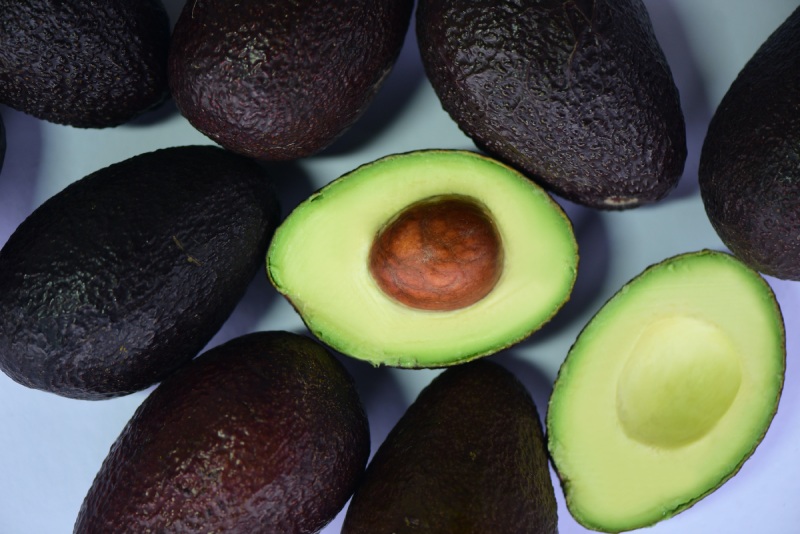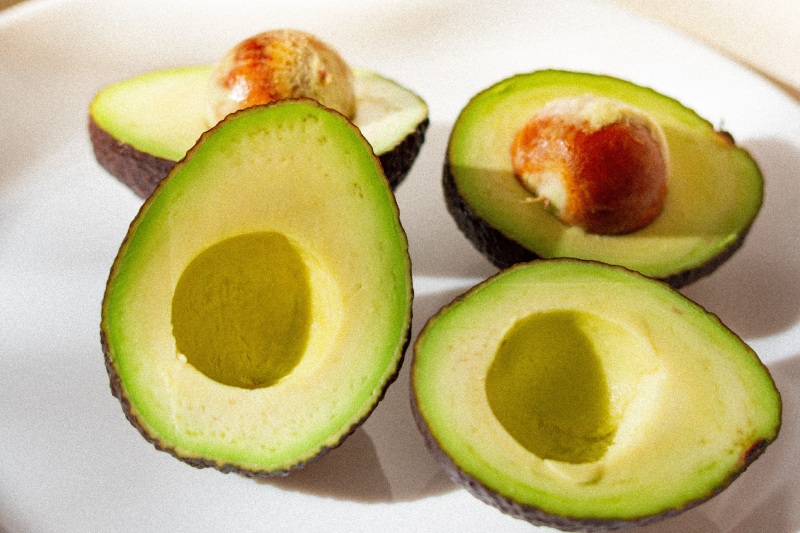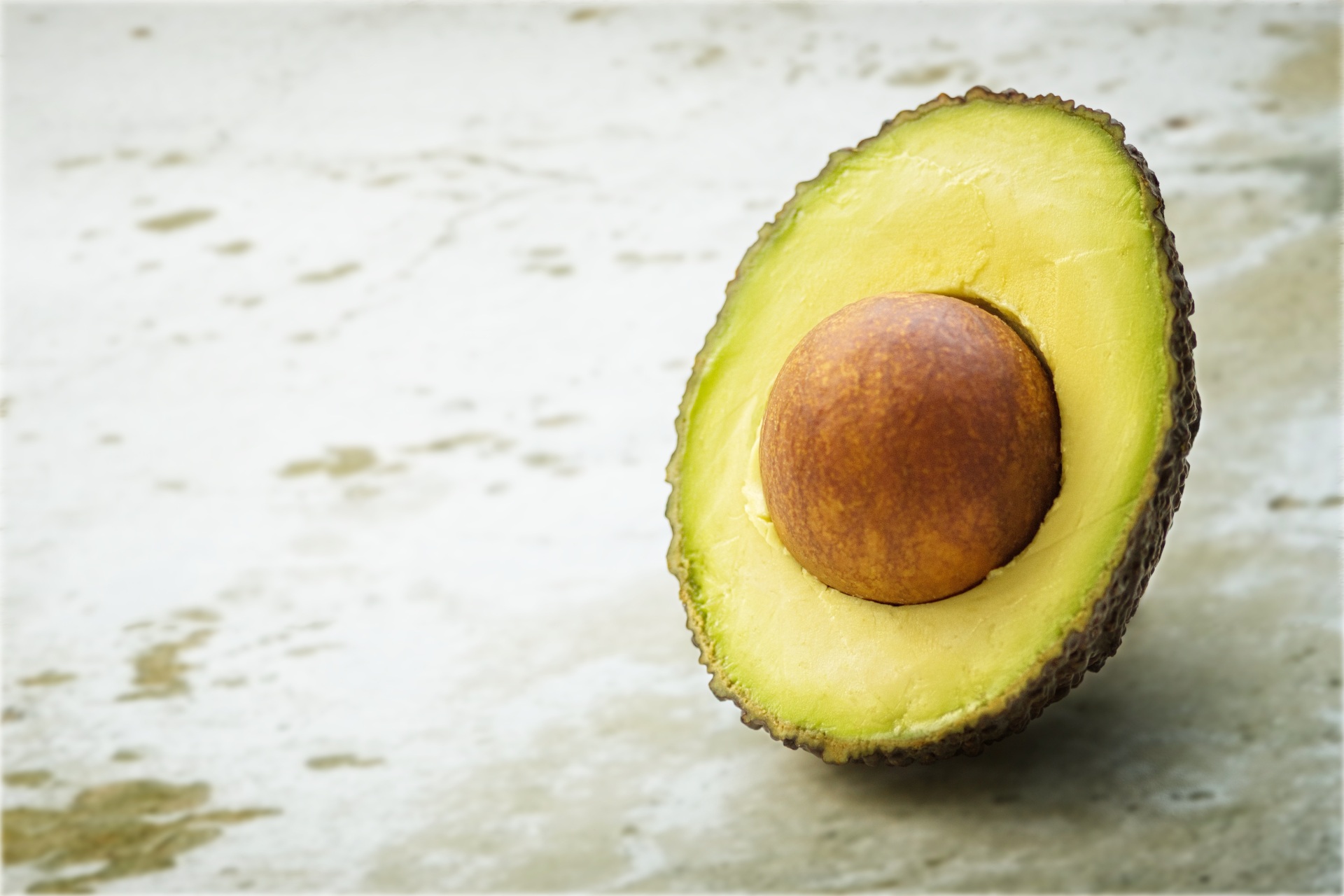5 Nutritional Benefits of California Avocados: Why Your Customers Will Love Them
Table of contents
Not only are California avocados delicious, but they’re also nutritious! Your diners are guaranteed to love them. Here’s why:
California avocados are all the rage these days. People love them, so it’s hardly surprising that California avocados are also incredibly popular in restaurants for everything from smoothies to guacamole to avocado boats. If you’re ready to jump on the trend and add an avocado-based dish to your menu, you’re in luck. The 2023 California avocado season is officially here!
California avocados are grown on fertile soil in sunny California and cared for by avocado growers from when the tree is planted to when the fruit is picked. The result is a buttery texture and a creamy taste that people can’t get enough of. What’s more, California avocados are incredibly fresh, as they can arrive at your restaurant within days of being picked! On top of that, these avocados offer some incredible nutritional benefits. Working avocados into your menu is a win-win for your customers’ taste buds and health.

5 Health Benefits of California Avocados
California avocado benefits go beyond taste and can make a difference in customers’ health.
They Contain Healthy Fats
We naturally tend to think of any fat as bad, but the truth is that there are good fats — and avocados are packed with them. More specifically, avocados contain monounsaturated fat and polyunsaturated fat. Both fats have at least one double carbon bond, making the fat bendable. As a result, monounsaturated fat and polyunsaturated fat will remain liquid at room temperature.
Monounsaturated fats have one double carbon bond in their chemical structure, hence the “mono”. 67% of the total fat in avocados is monounsaturated fat. That works out to 14.7 grams of monounsaturated fat per cup of chopped avocado. Other foods that contain monounsaturated fats include peanut butter, hazelnuts, pecans, almonds, pumpkin seeds, sesame seeds, pistachios, and various oils, such as olive oil, canola oil, and peanut oil.
But what do monounsaturated fats mean for your customers’ health and well-being? For one, they can lower low-density lipoprotein (LDL) cholesterol levels (a.k.a. bad cholesterol levels). This cholesterol is soft, waxy, and known to clog and block arteries, leading to heart disease and stroke. Monounsaturated fats can also decrease inflammation, improve insulin sensitivity, help with cell development and regulation, raise good cholesterol levels, and even boost mood. All in all, it’s definitely one of the healthier forms of fat.
Polyunsaturated fat is the other form of healthy fat found in avocados, though there is far less polyunsaturated than monounsaturated fat in avocados. Unlike monounsaturated fats, these fats have more than one double bond in their chemical structure. Polyunsaturated fat consists of just 12% of the total fat in avocados, meaning one cup of chopped avocado will yield 2.7 grams of polyunsaturated fat.
This healthy fat, also found in walnuts, flax seeds, cold-water fatty fish, and corn, sunflower, soybean, and flaxseed oils, includes essential omega-3 fatty acids, which can help with everything from cardiovascular function to eye health. The polyunsaturated fat found in avocados can also lower the risk of high blood pressure, high LDL cholesterol levels, Type 2 diabetes, heart disease, and stroke. At the same time, polyunsaturated fats can improve brain health, prevent Alzheimer’s disease, and improve mental health conditions. It may even help with weight loss, so don’t hesitate to add some avocados to your menu just because they contain fats!
They Offer Plenty of Fiber
Fiber has been associated with gas, bloating, and constipation when consumed in large amounts, but it can also be great for overall health. Not only are high-fiber diets known to reduce cholesterol and blood sugar, but they can even prevent certain types of cancer, such as colon cancer. On top of that, high-fiber diets promote healthier hearts and lower the risk of developing heart disease and diabetes. They can even help with weight loss, as dietary fiber is incredibly filling yet low in calories.
Men should aim for 35 grams of fiber intake per day, while women should consume 25 grams of fiber, but most people don’t quite reach those levels of fiber consumption. Currently, adults in the U.S. have an average daily fiber intake of just 15 grams.
While your mind may immediately jump to adding whole grains, beans, and berries to your menu as primary sources of fiber, the truth is that avocados also provide plenty of fiber! Each tablespoon of avocado contains around one gram of fiber, meaning an entire avocado equals roughly 10 grams of fiber. When you include avocados on your menu, you can please your customers’ taste buds, help increase their daily fiber intake, and get them a step closer to reaping the benefits of a high-fiber diet.

They Contain Lots of Vitamins
Avocados are also packed with vitamins. Most notably, avocados contain:
- Vitamin C: Required for tissue growth and repair as well as collagen formation, vitamin C is essential for all your customers. Without vitamin C, our bodies wouldn’t be able to form new muscles, cartilage, blood vessels, ligaments, or collagen. Vitamin C deficiency can lead to scurvy, iron-deficiency anemia, and fatigue.
- Vitamin E: Vitamin E has antioxidant properties. It helps prevent damage from free radicals and can bolster immune systems against bacteria and viruses. Vitamin E can also protect the heart and ensure healthy skin and hair.
- Vitamin B2: Avocados are also a source of vitamin B2 (riboflavin). Vitamin B2 is required for mitochondrial activities, red cell production, and body growth. It can also help reduce nerve inflammation and oxidative stress, helping decrease the occurrence of migraine headaches.
- Niacin: Niacin, a form of vitamin B3, can also be found in avocados. This B vitamin helps turn food into energy. It also helps lower bad cholesterol levels, raise good cholesterol levels, boost brain function, improve skin health, and ease arthritis.
- Vitamin B6: This water-soluble vitamin helps the immune system produce antibodies to fight off diseases. It also helps your body break down proteins, maintain normal nerve function, and form red blood cells.
- Vitamin K: Vitamin K is so essential to the blood clotting process that it’s sometimes called the clotting vitamin. Vitamin K also helps make proteins required for bone development, such as osteocalcin.
They Contain Lots of Minerals
Your diners will also receive plenty of minerals if you incorporate avocados into your menu. Minerals found in avocados include:
- Potassium: While most people think of bananas as the ultimate potassium provider, the truth is that avocados actually pack more potassium than bananas! Half an avocado without its seed or skin will contain around 345 mg of potassium. Our bodies need this mineral to maintain normal blood pressure, muscle function, and nerve function. Potassium also enables our body to transport nutrients to our cells.
- Iron: Iron is necessary for growth, development, hemoglobin production, and the production of certain hormones. A lack of iron can lead to anemia, cold hands and feet, dizziness, chest pain, and shortness of breath.
- Magnesium: Avocados also contain magnesium, a mineral essential for energy production and muscle contraction and relaxation. Without magnesium, our bodies would have difficulty creating bone, protein, and DNA as well as regulating blood pressure, blood sugar levels, and muscle and nerve function.
- Manganese: Manganese does a lot for us. Not only does it play a role in brain and nerve function, but it also helps our bodies metabolize fat and carbohydrates, regulate blood sugar levels, and absorb calcium. What’s more, manganese enables our bodies to form bones, connective tissue, and blood clotting factors. It can also help reduce inflammation and lower incidences of epileptic seizures.
They Are Naturally Free of Sodium, Sugar, and Cholesterol
Just as important as what avocados contain is what avocados don’t contain! The fact that California avocados don’t have any sodium, sugar, or cholesterol is the cherry on top when it comes to nutritional benefits.
Excessive sodium intake can lead to high blood pressure, stroke, and heart attacks, whereas sugar can raise your blood pressure, raise the risk of diabetes and fatty liver disease, cause inflammation and weight gain, and ultimately increase your risk of heart attacks and strokes. Similarly, bad cholesterol can build up in your arteries, leading to atherosclerosis, coronary artery disease, chest pain, and heart attacks.
Fortunately, including avocados on your menu won’t negatively impact your customers’ health, as California avocados are naturally free of sodium, sugar, and cholesterol. So, go ahead and add a dish featuring this tasty fruit to your menu!

Purchase Avocados and Deliver California Avocado Benefits
Now that you know some avocado nutrition facts and benefits, it’s time to add California avocados to the menu so customers can reap the health benefits of California avocados. Whether you add avocado salsa, guacamole, or avocado toast to your menu, it’s sure to be a hit among customers — and make sure to let customers know all about California avocado nutrition benefits!
Need fresh California avocados? Turn to a wholesale avocado distributor. When it comes to avocado distributors in NJ, you can’t do better than Riviera Produce. We source wholesale produce from family farms and will deliver fresh and flavorful avocados to your door with same-day or next-day delivery.
Check out Riviera Produce today to find high-quality fruits and vegetables for your restaurant!
